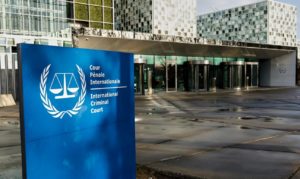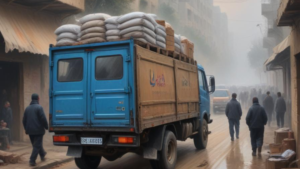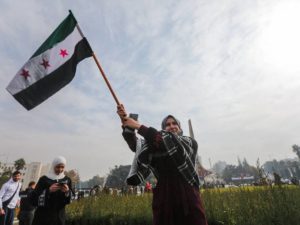9 December 2021
About 39 million people live in Afghanistan, of whom 3.5 million have recently been internally displaced. While 150,000 were airlifted from Kabul in August and thousands of others are crossing the borders every day into neighbouring countries, the vast majority have no choice but to remain through the winter. Decisions taken in the coming few weeks by governments, international organisations, and NGOs in their response to the humanitarian and economic crisis will be decisive in determining how many Afghans survive the winter. It is morally unacceptable that after 40+ years of war, suffering and missed development opportunities Afghans should be made to pay for the consequences of the West’s failed state-building project. It is also politically reckless as this will make engagement with the de facto authorities more difficult and increase the risks of yet more fighting.
The horror that Afghans are confronting is becoming increasingly clear as media reports speak of pockets of starvation. UN agencies estimate that around 8.7 million people, of whom one million children will face famine conditions, unless immediate action is taken. Around 5,000 people per day are fleeing to Iran out of fear or desperation to seek jobs, and where they risk being caught and summarily deported.
The Taliban, de facto rulers of the country, but operating under severe sanctions, in their efforts to meet the people’s basic needs after 40 years of war, are facing the consequences of a prolonged drought, the impact of the Covid pandemic, and the abrupt departure, in August, of the governments that provided essential support for the economy. On top of this, the Western powers that left in August are blocking the release of over $us 9 billion belonging to the Afghan government and held in US banks.
UAI, therefore, calls for the following immediate action:
The US Government must immediately start the release of the Afghan government’s reserves and work out, through intermediaries, if necessary, mechanisms to make funds available to the Taliban administration to pay the salaries of doctors, nurses, teachers, civil servants and other essential workers, and related operating costs. In addition to meeting the government’s obligations towards its officials, this is the quickest and surest way to re-energise the economy and allow food and other markets to recover and prevent widespread starvation. At the same time, European and other donor governments must rapidly increase their support for humanitarian programmes.
International NGOs with a presence in the country will remain one of the key channels for international assistance and must ramp up their emergency humanitarian operations and work to support national NGOs. In accordance with internationally accepted humanitarian principles of humanity, impartiality, neutrality and independence, this humanitarian assistance must be provided without imposing conditions, other than those giving assurances that the funds are being used for the purpose of meeting essential basic needs.
The UN, other international organisations bilateral donors, and NGOs interested in supporting the economic recovery of the country and its people should engage seriously with the de facto administration to work out the essential conditions for resuming or initiating development programmes. These conditions must include respect for human rights and fundamental freedoms for women and girls.
UNHCR and IOM should work together urgently and proactively to engage with the governments of Afghanistan’s neighbours and the governments of countries hosting significant populations of Afghan refugees and migrants. They should set up creative and humane mechanisms for Afghans currently leaving the country to be supported with dignity in the neighbouring countries until conditions allow them to return home. Those interested in applying for admission to countries of resettlement must be assisted to lodge their applications, thereby avoiding the horror of being trafficked or smuggled along routes that expose them to serious risks of death, trauma, and exploitation.
*Image Credit: Jrheinlaender via Wikimedia Commons











